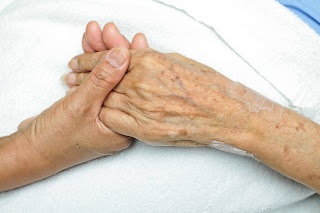Medication Management – Keeping it Simple
 Taking medication the way it was prescribed seems like such a simple task. Then why is it such a problem for the elderly? Consider the fact the most elderly take multiple medications, often more than once a day, prescribed by various doctors, for a number of medical conditions. Add supplements into the mix and you can start to imagine the number of pills an elderly adult must juggle. There are several ways that can make medication management safe and easy.
Taking medication the way it was prescribed seems like such a simple task. Then why is it such a problem for the elderly? Consider the fact the most elderly take multiple medications, often more than once a day, prescribed by various doctors, for a number of medical conditions. Add supplements into the mix and you can start to imagine the number of pills an elderly adult must juggle. There are several ways that can make medication management safe and easy. - Make sure your doctor and your pharmacy know your drug allergies.
- Set up your the medications in a weekly pill box. This serve as a reminder for each day’s medication.
- Discuss your medication with your physician. Take all of your medication (even the supplements and over-the-counter drugs) to your physician at each visit. This allows them to review all the medications and make adjustments as needed.
- Have all your prescriptions filled at the same pharmacy. This will allow the pharmacist to check for drug interactions and appropriate dosing.
- Medications have more than one name – the brand names and the generic name. This means the same medication may have several different names and types of packaging. If the pharmacist gives you a pill that looks different than the one you are used to, ask for an explanation.
- Always take your medication as prescribed by your doctor. Make sure you know what to do if you miss a dose.
- Talk to your doctor about the possible side effects of your medication so you know what to look for.
- Always check with your pharmacist before taking over the counter or herbal medications.
- Keep an updated list of your medications, dosage and frequency in your wallet. That way if you go to the urgent care or the emergency room, you will be able to provide them with a current medication list. Write your drug allergies on this list in red ink.
If you are setting up pills for a person with dementia:
- Keep the extra medication locked up or off-site.
- Set up medications in a weekly pill box, but keep it out of site and take out one dose at a time.
- Watch the person take their medication. It is common for people with dementia to spit their medication out or hide it.
If you have a loved one with memory loss, it may be beneficial to consult a Geriatric Care Manager to assist in developing a plan for medication management. The Care Manager can help you determine the best plan for medication management, including devices that dose the medication throughout the day. With a little planning, medication management can become an easy routine and your chances of a problem will significantly decrease.
Arizona Geriatric Care Manager | Elder Care Coaching Mesa, AZ | Tempe, AZ Elderly Mediation






